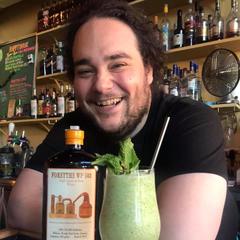-
Welcome to the eG Forums, a service of the eGullet Society for Culinary Arts & Letters. The Society is a 501(c)3 not-for-profit organization dedicated to the advancement of the culinary arts. These advertising-free forums are provided free of charge through donations from Society members. Anyone may read the forums, but to post you must create a free account.
Yemeni milk tea
-
Similar Content
-
- 10 replies
- 3,956 views
-
Iced tea bags
By lindag,
- 2 replies
- 834 views
-
- 35 replies
- 22,464 views
-
- 0 replies
- 5,631 views
-
- 4 replies
- 1,832 views
-
-
Recently Browsing 0 members
- No registered users viewing this page.






Recommended Posts